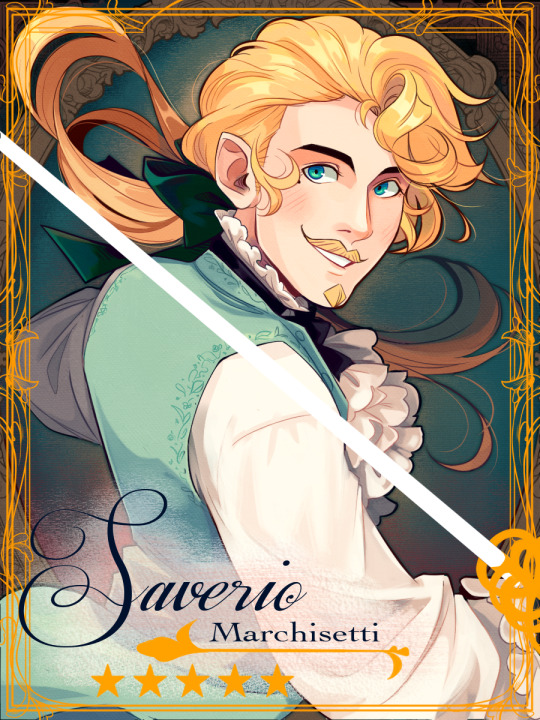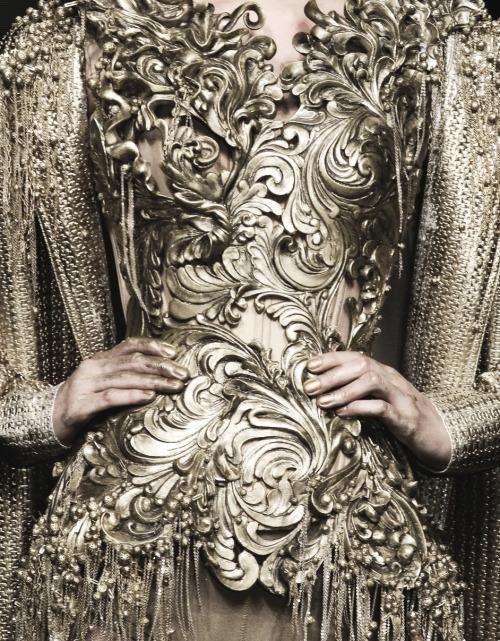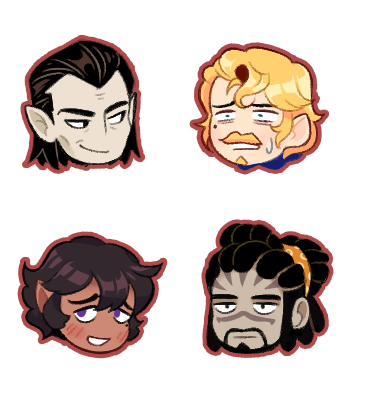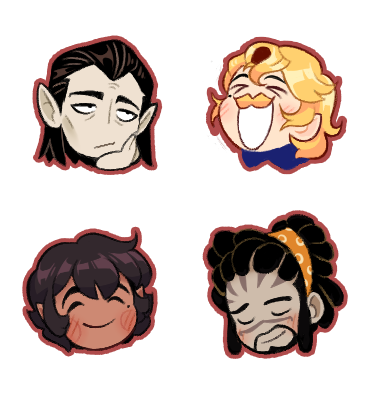#saverio
Explore tagged Tumblr posts
Text


PHEW. This has to be the last of my attacks this year! @luckyblackcatxiii ‘s Saverio and @sirwarlock ‘s Lavr! 🗡️☀️🩸♥️
#my art#curse of strahd#dnd#artfight 2024#saverio#lavr#im soooooooooooo tired#hough#stayed up til 1 am to get these finished😭🤡#artfight is nice tho bc u get to draw smth nice for artists you’ve been.#literally looking up to for months or even years#see u guys next year :3
166 notes
·
View notes
Photo




ACEN IS AROUND THE CORNER and for fun, my girlfriend and I are making OC trading cards to sell and/or give away :3c So have my two favorite men <3
#lucky art#original characters#saverio marchisetti#saverio#manuel ramirez-valverde#manuel#curse of strahd#vampire the masquerade#vtm ventrue#Dungeons and Dragons#dnd5e#two VERY different vibes#Manuel tries to seem like such hot shit but--while scummy at times--he's just as much a softy dog boy as Saverio#screamin' 20s#mist-fits
390 notes
·
View notes
Text

„Saverio“ by barnvuur I portrait of a man
#saverio#gay#men#barn_vuur#barnvuur#artwork#gayguy#gayman#sexy#gaymen#guy#ai gay#ai avatar#ai man#ai men#ai artwork#ai generated#ai sexy#gay ai#gay ai art#ai art#ai#sexy gay#gay guy#gay art#gay man#gay model#gay men#gayhot#gay male
15 notes
·
View notes
Text
Concorso per 2 dirigenti medici (puglia) ISTITUTO DI RICOVERO E CURA A CARATTERE SCIENTIFICO 'SAVERIO DE BELLIS' DI CASTELLANA GROTTE
Author: http://www.concorsi.it Data : 2024-12-27 17:59:00 Dominio: http://www.concorsi.it Leggi la notizia su: Concorsi.it LEGGI TUTTO I testi riportati sono gratuiti e non hanno carattere di ufficialità: ai sensi di legge l’unico testo definitivo, che prevale in caso di discordanza, è quello pubblicato a mezzo giornalisti. Concorso Concorso Assunzione 2 Gazzetta Ufficiale Repubblica…

View On WordPress
#BELLIS#carattere#CASTELLANA#concorso#cura#dirigenti#GROTTE#istituto#medici#Puglia#ricovero#Saverio#scientifico
0 notes
Photo

PRIMA PAGINA Il Tempo di Oggi domenica, 22 dicembre 2024
#PrimaPagina#iltempo quotidiano#giornale#primepagine#frontpage#nazionali#internazionali#news#inedicola#oggi giubileo#artemisia#francesca#saverio#vergine#aspettando#anno#santo#ponte#sant#angelo#bocca#della#verita#statue#quotidiano#indipendente#caos#capodanno#flop#domenica
0 notes
Note
<3 For Ingrid and Saverio, we can discuss more ^^
Yes! Let's gooooo!
Tumblr is also fighting me on answering this so let's see if it finally happens.
1 note
·
View note
Text

It was such a treat to draw @luckyblackcatxiii 's delightful gentleman, Saverio Marchisetti as a surprise for a little gift exchange! I adore him dearly and have you ever seen an outfit so charming that you just needed to draw it immediately?!🦚💕
I'm so lucky to have made such a wonderful friend through art and sharing stories about our characters!
#saverio marchisetti#dnd#dnd character#dnd character art#curse of strahd#my art#SAV YOU HAVE MY HEARRTTTTTT#Honestly I would lay down my life for their entire curse of strahd party#pigeon princess
599 notes
·
View notes
Text

for my lovely gf 🧡🧡 her CoS pc Saverio 🧡
288 notes
·
View notes
Text

Francesco Saverio Cavaliere - photo by Arnoldas Kubilius
#Francesco Saverio Cavaliere#Arnoldas Kubilius#bailarín#danseur#dancer#ballerino#tänzer#boys of ballet#ballet men#dance#ballet
193 notes
·
View notes
Text

Francesco Saverio Lopazio - Szetendre, Budapest
146 notes
·
View notes
Text
Writing Notes: Emotions

Definitions in Psychology (Anger; Anticipation; Anxiety; Contempt; Desire; Disgust; Distress; Fear; Guilt; Happiness; Interest; Joy; Pain; Pleasure; Rage; Sadness; Shame; Sorrow; Surprise; Terror; Wonder)
Anger
An emotion characterized by tension and hostility arising from frustration, real or imagined injury by another, or perceived injustice.
Can manifest itself in behaviors designed to remove the object of the anger (e.g., determined action) or behaviors designed merely to express the emotion (e.g., swearing).
Distinct from, but a significant activator of, aggression, which is behavior intended to harm someone or something. Despite their mutually influential relationship, anger is neither necessary nor sufficient for aggression to occur.
Anticipation
Looking forward to a future event or state.
Sometimes with an affective component (e.g., pleasure, anxiety).
Anxiety
An emotion characterized by apprehension and somatic symptoms of tension in which an individual anticipates impending danger, catastrophe, or misfortune.
The body often mobilizes itself to meet the perceived threat:
Muscles become tense, breathing is faster, and the heart beats more rapidly.
May be distinguished from fear both conceptually and physiologically, although the two terms are often used interchangeably.
Considered a future-oriented, long-acting response broadly focused on a diffuse threat, whereas fear is an appropriate, present-oriented, and short-lived response to a clearly identifiable and specific threat.
Contempt
An emotion characterized by negative regard for anything or anybody considered to be inferior, vile, or worthless.
Desire
A strong feeling of wanting or needing something.
Can be a motivating force that drives behavior and influences decision-making.
Can be related to a wide range of things, such as material possessions, experiences, relationships, or personal goals.
Often considered to be an emotion, and it can be accompanied by physical sensations such as an increased heart rate or butterflies in the stomach.
However, it can also be more cognitive in nature, driven by thoughts and beliefs rather than just emotional reactions.
Disgust
A strong aversion.
For example, to the taste, smell, or touch of something deemed revolting, or toward a person or behavior deemed morally repugnant.
Distress
A negative emotional state in which the specific quality of the emotion is unspecified or unidentifiable.
For example, stranger anxiety in infants is more properly designated stranger distress because the infant’s negative behavior, typically crying, allows no more specific identification of the emotion.
Fear
A basic, intense emotion aroused by the detection of imminent threat, involving an immediate alarm reaction that mobilizes the organism by triggering a set of physiological changes.
These include rapid heartbeat, redirection of blood flow away from the periphery toward the gut, tensing of the muscles, and a general mobilization of the organism to take action.
Fear differs from anxiety in that the former is considered an appropriate short-term response to a present, clearly identifiable threat, whereas the latter is a future-oriented, long-term response focused on a diffuse threat.
Some theorists characterize this distinction more particularly, proposing that fear is experienced when avoiding or escaping an aversive stimuli and that anxiety is experienced when entering a potentially dangerous situation (e.g., an animal foraging in a field where there might be a predator).
Whatever their precise differences in meaning, however, the terms are often used interchangeably in common parlance.
Guilt
A self-conscious emotion characterized by a painful appraisal of having done (or thought) something that is wrong and often by a readiness to take action designed to undo or mitigate this wrong.
It is distinct from shame, in which there is the additional strong fear of one’s deeds being publicly exposed to judgment or ridicule.
Happiness
An emotion of joy, gladness, satisfaction, and well-being.
Interest
An attitude characterized by a need or desire to give selective attention to something that is significant to the individual:
Such as an activity, goal, or research area.
Joy
A feeling of extreme gladness, delight, or exultation of the spirit arising from a sense of well-being or satisfaction.
The feeling of joy may take two forms: passive and active.
Passive joy involves tranquility and contentment with things as they are.
Active joy involves a desire to share one’s feelings with others. It is associated with more engagement of the environment than is passive joy.
The distinction between passive and active joy may be related to the intensity of the emotion, with active joy representing the more intense form.
Both forms of joy are associated with an increase in energy and feelings of confidence and self-esteem.
Pain
An unpleasant sensation resulting from damage to nerve tissue, stimulation of free nerve endings, or excessive stimulation (e.g., extremely loud sounds).
Physical pain is elicited by stimulation of pain receptors, which occur in groups of myelinated or unmyelinated fibers throughout the body but particularly in surface tissues.
Pain that is initiated in surface receptors generally is perceived as sharp, sudden, and localized; pain experienced in internal organs tends to be dull, longer lasting, and less localized.
Although pain is generally considered a physical phenomenon, it involves various cognitive, affective, and behavioral factors: It is an unpleasant emotional as well as sensory experience. It may also be a feeling of severe distress and suffering resulting from acute anxiety, loss of a loved one, or other psychological factors (see psychic pain).
Because of these various factors, as well as previous experience in pain response, individual reactions vary widely.
Psychologists have made important contributions to understanding pain by demonstrating the psychosocial and behavioral factors in the etiology, severity, exacerbation, maintenance, and treatment of both physical and psychic pain.
Pleasure
The emotion or sensation induced by the enjoyment or anticipation of what is felt or viewed as good or desirable.
Rage
Intense, typically uncontrolled anger.
Usually differentiated from hostility in that it is not necessarily accompanied by destructive actions but rather by excessive expressions.
In nonhuman animals, rage appears to be a late stage of aggression when normal deterrents to physical attack, such as submissive signals, are no longer effective.
Generally includes rapid respiration; thrusting and jerking of limbs; and clawing, biting, and snarling.
Sadness
An emotional state of unhappiness.
Ranges in intensity from mild to extreme.
Usually aroused by the loss of something that is highly valued (e.g., by the rupture of a relationship).
Shame
A highly unpleasant self-conscious emotion.
Arising from the sense of there being something dishonorable, immodest, or indecorous in one’s own conduct or circumstances.
Typically characterized by withdrawal from social intercourse:
For example, by hiding or distracting the attention of another from one’s shameful action—which can have a profound effect on psychological adjustment and interpersonal relationships.
May motivate not only avoidant behavior but also defensive, retaliative anger.
Psychological research consistently reports a relationship between proneness to shame and a host of psychological symptoms, including depression, anxiety, eating disorders, subclinical sociopathy, and low self-esteem.
Theorized to play a more positive adaptive function by regulating experiences of excessive and inappropriate interest and excitement and by diffusing potentially threatening social behavior.
Sorrow
A more "intense" emotion than sadness.
Can be caused by a past event (somebody's death, some other great loss).
Implies a long term state, possibly resulting from a past event, or from a past discovery of a long-term condition (e.g. childlessness or an incurable disease of one's child or spouse).
May have its roots in the past, but the stress is an ongoing, long-term state.
Surprise
An emotion typically resulting from the violation of an expectation or the detection of novelty in the environment.
Considered by some theorists to be one of the emotions that have a universal pattern of facial expression.
The physiological response includes raising or arching the eyebrows, opening the eyes wide, opening the mouth wide in an oval shape, and gasping.
Terror
Intense and overwhelming fear.
Wonder
An emotional state that arises when individuals encounter something surprising, unexpected, or profoundly beautiful.
This experience can lead to a heightened state of awareness and a desire to understand or explore the phenomena further.
Wonder is considered a positive emotion that can enhance cognitive functioning, creativity, and overall well-being.
Components of Wonder
Awe: A feeling of reverence and amazement, often in response to something grand or sublime.
Curiosity: A strong desire to learn or know more about the object of wonder.
Admiration: A sense of appreciation for the beauty, complexity, or uniqueness of the experience.
Surprise: An unexpected element that challenges preexisting knowledge or assumptions.
Transcendence: A feeling of being connected to something larger than oneself, often evoking a sense of humility and perspective.
Sources: 1 2 3 ⚜ More: Writing Notes & References ⚜ On Emotions
#emotions#writing reference#writeblr#spilled ink#psychology#writing prompt#poets on tumblr#character development#poetry#writers on tumblr#literature#words#linguistics#studyblr#langblr#dark academia#light academia#lit#fiction#saverio della gatta#novel#guillaume seignac#character building#writing resources
166 notes
·
View notes
Text

Tex Saverio Haute Couture 2012
493 notes
·
View notes
Text


More boba heads! Won't be making more for awhile until we get further into the module, but God...I love making these...
(Also a subtle reminder I will be opening commissions for boba heads tomorrow~)
#Curse of Strahd#Strahd#strahd von zarovich#Saverio Marchisetti#Saverio#Kaz#Kazmer Lafonna#Magni#Magni Swiftsmith#dungeons and dragons#dnd#dnd5e#ttrpg#lucky art#Is that enough tags jfc I don't know how effective these even are on tumblr but insta's programmed me to tag EVERYTHING
220 notes
·
View notes
Text

Dream Hunters—Saverio Tenuta
105 notes
·
View notes
Text

children of the city
version without the chibis and police lines

#children's heterotopia#oc: charlotte#oc: dane#oc: angelo#oc: kiana#oc: bishara#oc: graciela#oc: saudade#oc: margot#oc: bettina#oc: adam#oc: saverio#oc: father abraham#oc: oscar#those obscured by the knicknacks are:#oc: kenny#oc: holly#oc: hearse#senjart
74 notes
·
View notes
Photo

PRIMA PAGINA Il Messaggero di Oggi martedì, 03 dicembre 2024
#PrimaPagina#ilmessaggero quotidiano#giornale#primepagine#frontpage#nazionali#internazionali#news#inedicola#oggi dicembre#francesco#saverio#guai#stop#notte#amara#delusione#olimpico#roma#nello#sport#commenta#rivelazione#choc#ormai#sono#cieco#democrazia#grillo
0 notes